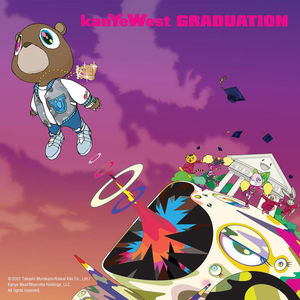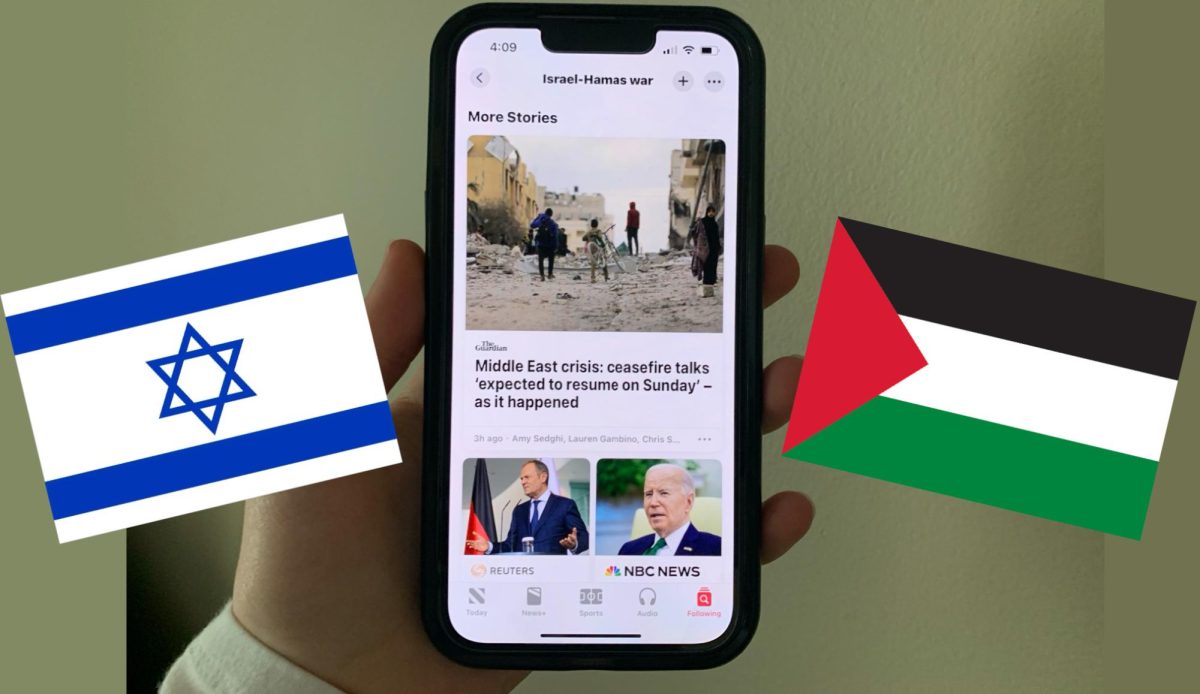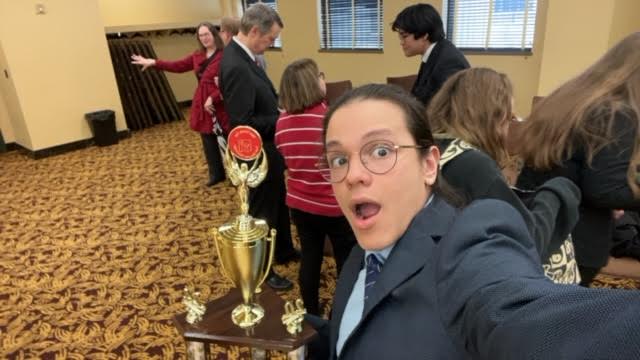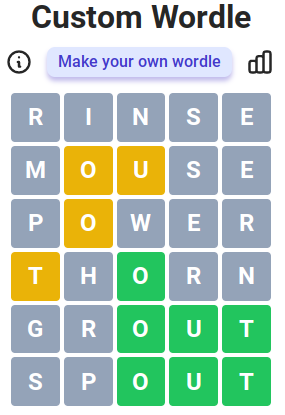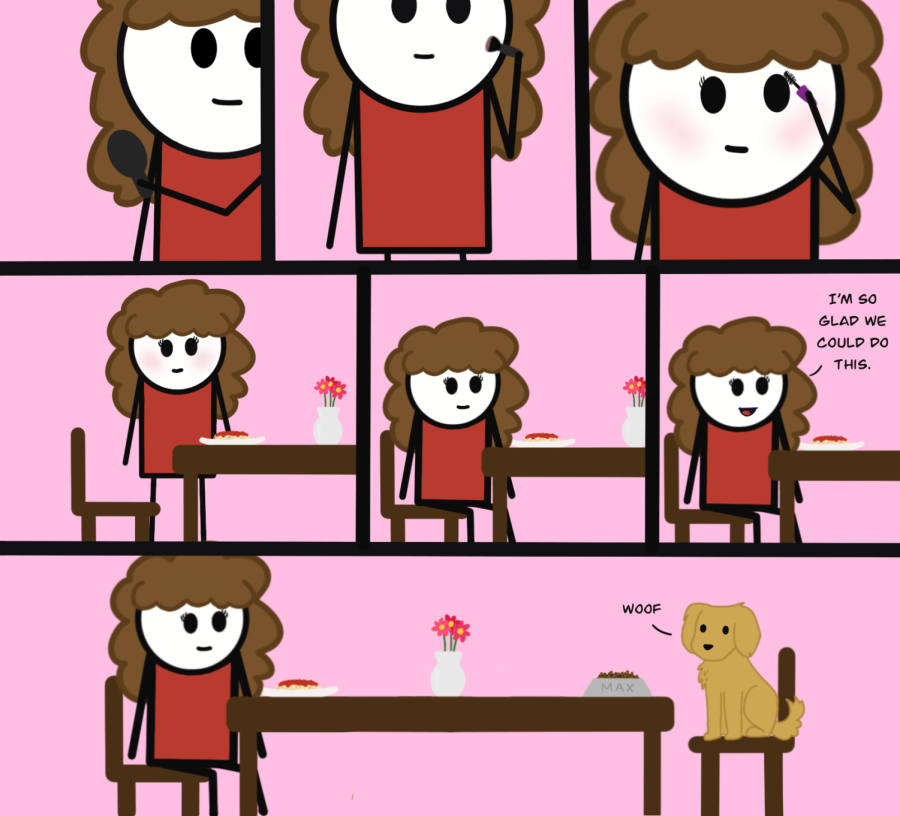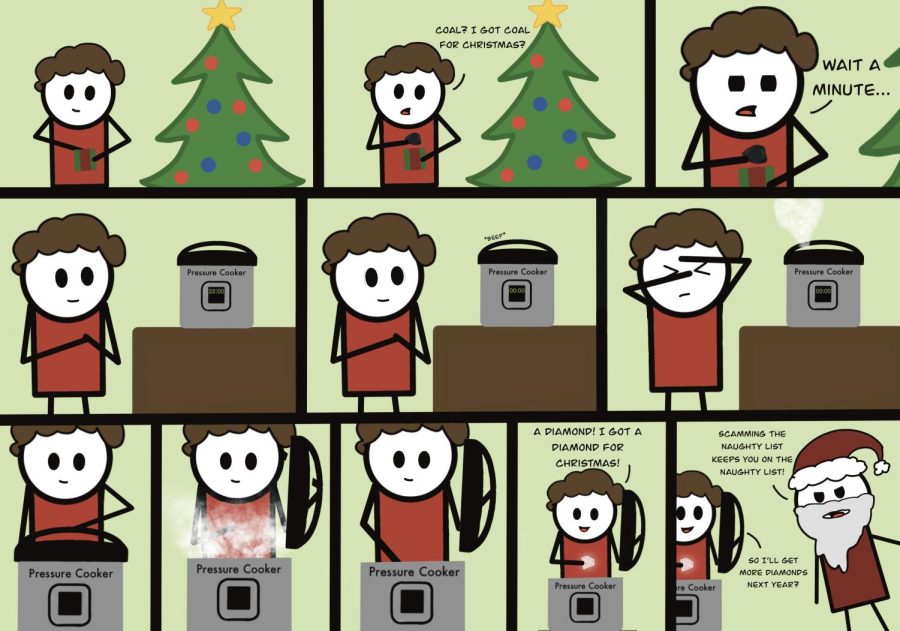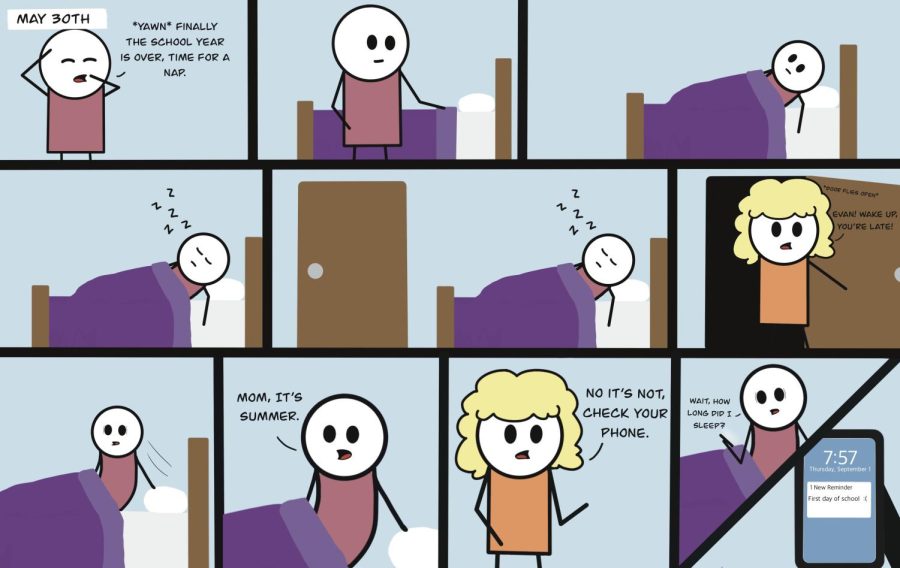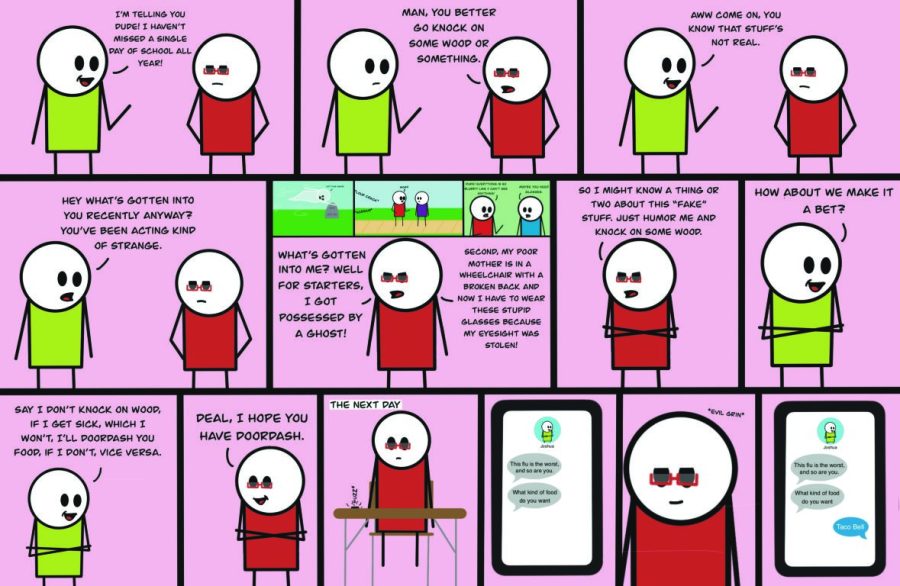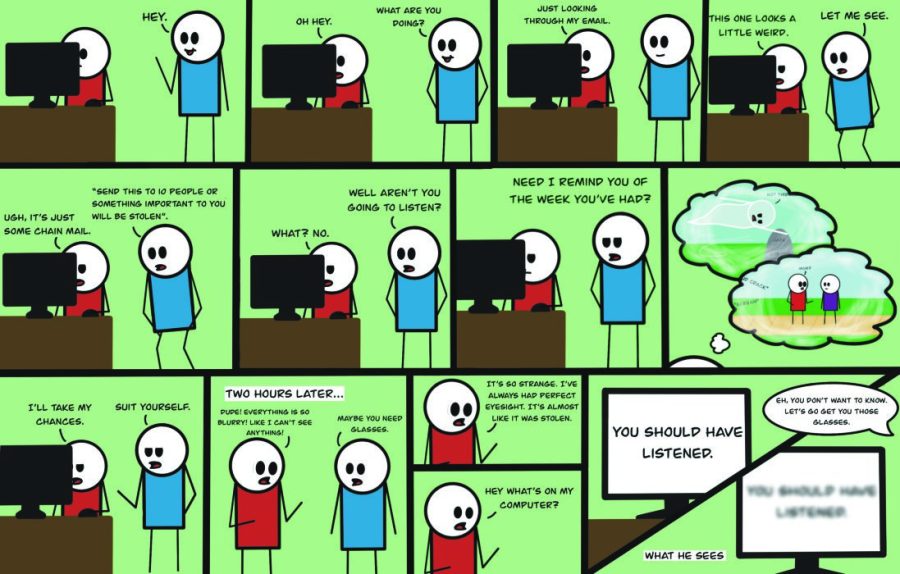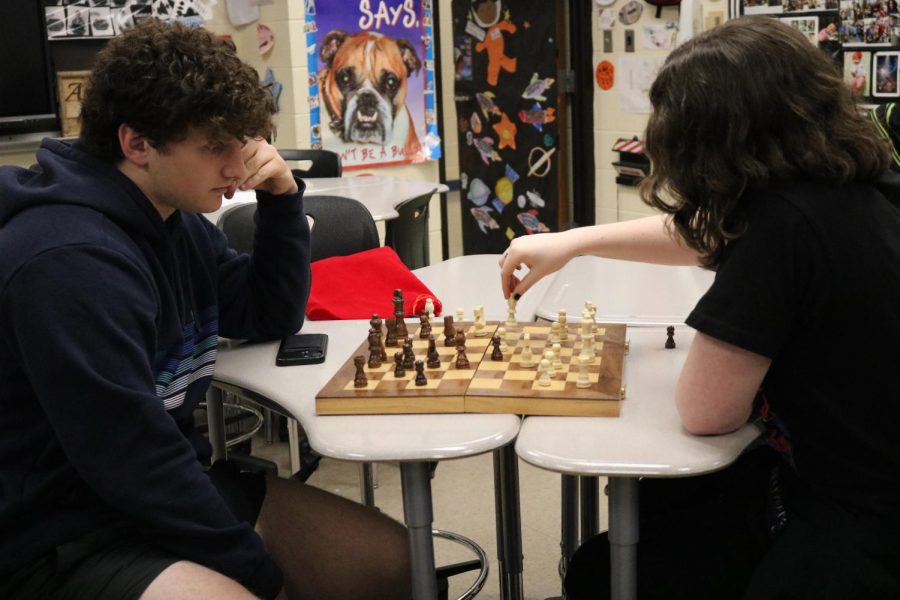The revival of chess: a game of skill and strategy
Michael Farnham and Karlie Brinegar play a friendly game of chess at chess club Wednesday after school.
Students sit in pairs at tables staring at their chess boards intensely, thinking carefully about each individual move. Every time a piece is moved a little plunk sounds as it hits the board, a little clang as it knocks over another piece. “Check.”
Bradley Shimel tells NPR that, “Chess games have surged among players both in the real world and on Chess.com, an online virtual platform. Since January 2020, more than 102 million users have signed up through [the site], a 238% increase.”
Chess isn’t a new game. It’s been around for more than 1,400 years; it’s one of the oldest and most widely played games in the world. However, a sudden popularity among young people started during the pandemic with students often playing chess on their phones using chess apps. Blake Barker, chess club champion, jumped on the trend last year. Before then he never even considered learning it.
“I was on vacation, and I was looking for something to do. And I realized that there was this fancy board game that I didn’t know how to play. It started on the iMessage game and me and my friends would goof around it. We didn’t know how to play or how to win. And so I finally decided to learn, and that’s how I started,” Barker said.
There are popular streamers on YouTube and championships being streamed which had also contributed to chess’s popularity. The most popular streamers are GothamChess, with 3.36 million subscribers, GMHikaru, with 1.83 million subscribers, and Magnus Carlsen with 935 thousand subscribers. Watching these influencers online can help viewers improve at the game and it’s a fun form of entertainment for those interested.
“Yeah, I’d say it’s as popular as any other video game, dominated by social media influence, a lot of people trying to get better,” Barker said.
While chess can certainly be hard to master, online platforms provide a place where players can hone their skills every day. Virtual chess playing has become another way to interact with people from all over the world. Players match up with opponents of a similar skill level to keep the game fair. Barker uses Chess.com to practice for in-person competitions.
“Online, I lose every single day and that is part of it. You get your average rating or how good you are, from how consistently you can beat people of your level. And so I constantly get better every day,” Barker said.
After playing consistently, Barker continued to improve his skills and slowly started winning more and more games.
“I’d say chess is a game where you learn more by losing than winning a lot of the time, but it’s different, like practice does not make perfect. Like there’s new concepts you have to be introduced to certain things to be a master at the game,” Barker said.
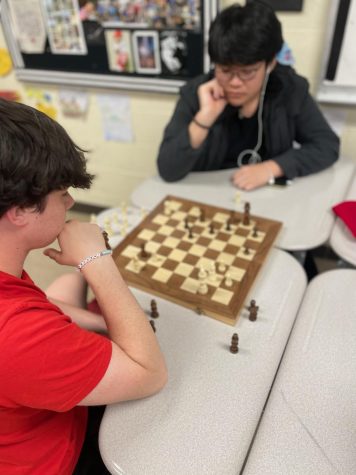
(Andrea Nichols)
Chess has a long list of special rules and moves for each piece, such as Castling, which is the only move in the game where a player can move two pieces at once. Chess isn’t a game that can be learned quickly, it takes a lot of time and practice and commitment just like anything else.
“Chess is not only a board game, but a mind game as well. Not only do you need strategies, but you also need to predict your opponent’s move. I love that so many different people come from different backgrounds and peers at KHS and come together to play chess together,” Kevin Jiang, Chess Club president, said.
Chess brings people together and works as a great tool for students improving memory and critical thinking skills. Students of the chess club attend for the community and fun they have every Wednesday after school.
“My favorite part about playing is that on a given day, no two games will be exactly the same. There are thousands of moves and hundreds of ways to play. Not only is it a game, but it is also a tool for students as it can teach patience that so many of us lack today,” Jiang said.
Want to show your appreciation?
Consider donating to The Knight Times!
Your proceeds will go directly towards our newsroom so we can continue bringing you timely, truthful, and professional journalism.

Paige is a senior and Editor in Chief of the Knight Times. This is her second year in journalism and she joined journalism to improve her writing skills...











